10 Feng Shui mirror tips that experts say will fill your home with good energy
These Feng Shui mirror ideas will enhance your living space - and may even improve your life

The Livingetc newsletters are your inside source for what’s shaping interiors now - and what’s next. Discover trend forecasts, smart style ideas, and curated shopping inspiration that brings design to life. Subscribe today and stay ahead of the curve.
You are now subscribed
Your newsletter sign-up was successful
Feng shui mirror ideas can enhance your home - and may impact your life in positive ways. Developed in China over 4000 years ago, the practice of Feng Shui is based on the principles of improving the flow of chi (energy) in your home, in order to promote health, wealth and happiness.
The literal translation is wind-water and the benefits of Feng Shui can include better sleep, increased prosperity, more harmonious relationships, and improved health.
'Our surroundings are always influencing our well-being,' says Amanda Gibby Peters, Feng Shui master and founder of Simple Shui. 'Behavioral scientists concur. Studies prove that our environment affects our brains and bodies, which influence our thoughts and feelings, which coax our moods,behaviorss and decisions.
'So, your home, your office, and anywhere you dwell is certainly deserving of consideration in your well-being and happiness goals because it’s holding influence over you every single day.
'Feng Shui itself is an understanding of this energy around us and an interpretation of ways to leverage it in our favor.'
Feng shui mirror ideas to try
Whether you're totally down with Feng Shui principles or are yet to be convinced, it's not hard to see how many of its suggestions, such as increasing light in dark corners or clearing clutter, will improve your home and how you feel in it, prompting positive change. So how can Feng Shui mirror ideas benefit your home?
1. Magnify wealth in the bathroom
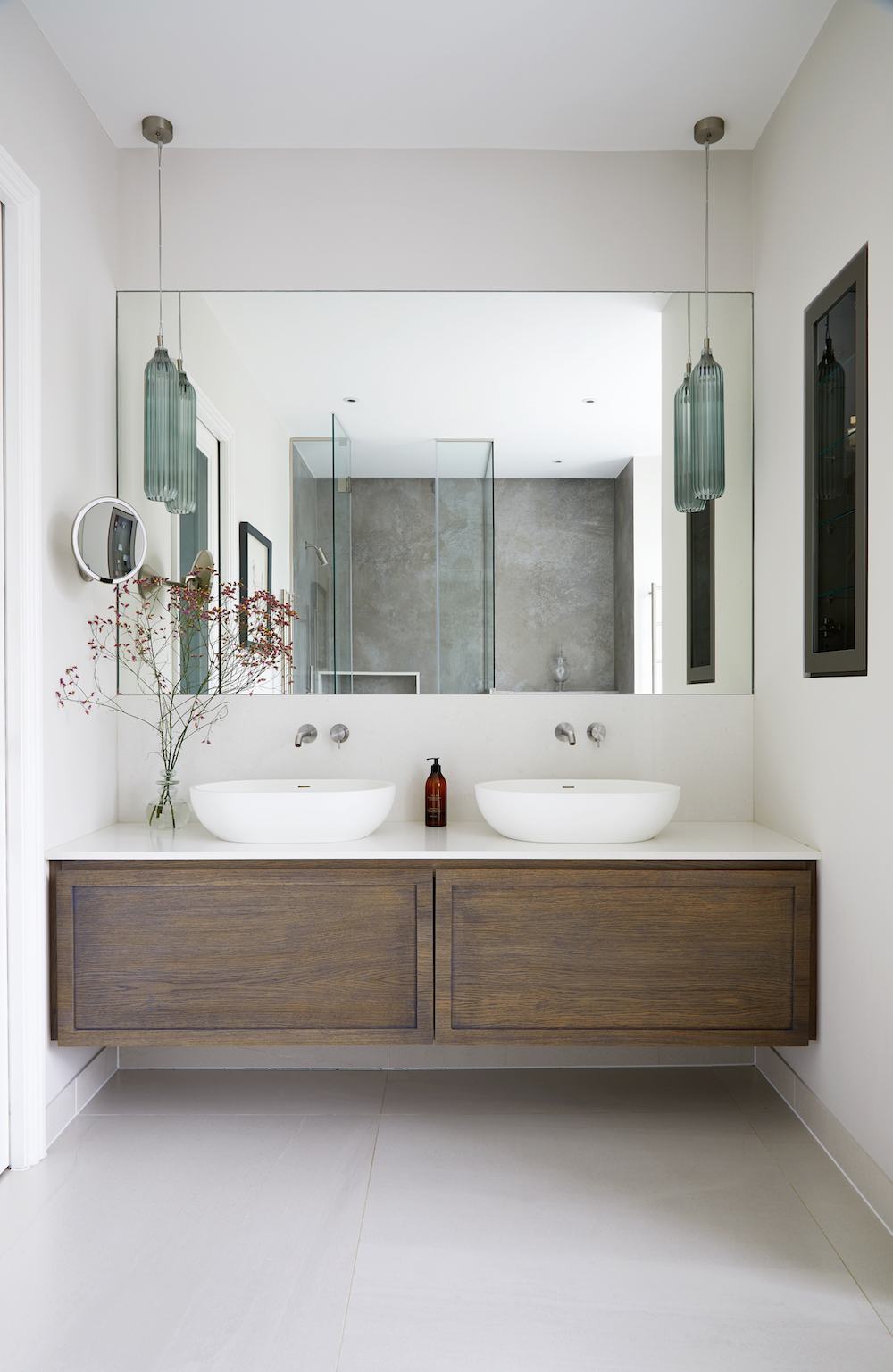
In design terms, mirrors are essential when honing modern bathroom ideas. They can enhance a small space, making it feel lighter and brighter. As well as the practical benefits they provide. Yet there are other energetic benefits that may not be obvious.
The Livingetc newsletters are your inside source for what’s shaping interiors now - and what’s next. Discover trend forecasts, smart style ideas, and curated shopping inspiration that brings design to life. Subscribe today and stay ahead of the curve.
'Mirrors connect to the water element, embodying the qualities of fluidity, wisdom and intuition. In addition, water represents wealth and abundance,' says Feng Shui expert and founder of Holistic Interiors, Anna Lippett.
'Reflecting a view of water, whether actual or an image brings more of the water element into your home and life, thus attracting more prosperity.
'Modern Feng Shui encompasses many well-used modern architectural and interior design principles: spatial planning, placement, color psychology, biophilia, salutogenesis, aroma and mindful living.
'Applying Feng Shui principles optimizes the flow of energy (chi, qi, life-force) through a space to harmonize inhabitants with their environment. Through intention, action and adjustment specific energy can be invited into a space to balance the chi.'
2. Go for full reflections and improve relationships
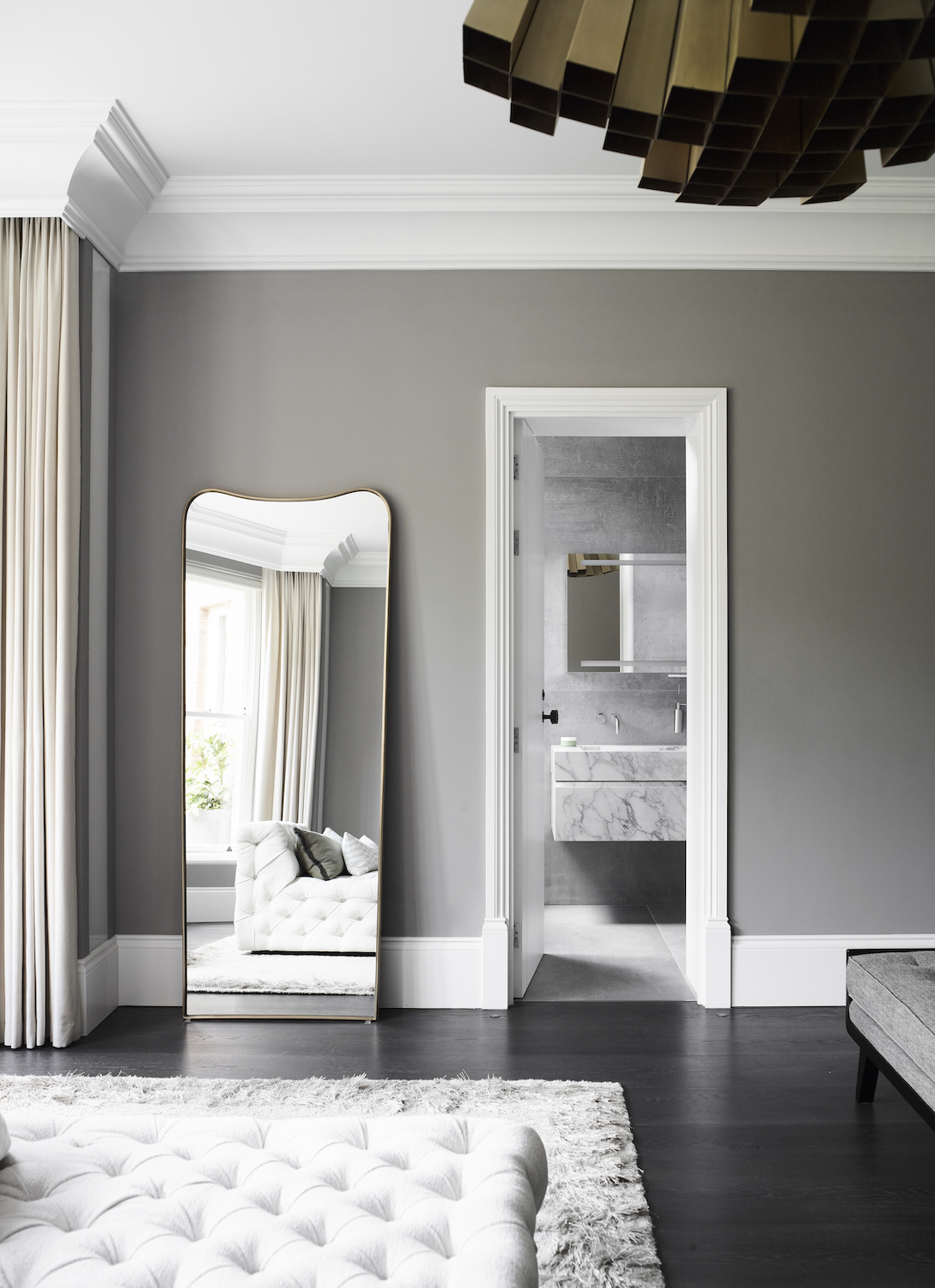
Mirrors can be used to redirect or deflect stagnant chi or energy, so be aware of what is reflected. Fragmented or cut off reflections, especially in living room mirrors, can create chaotic chi.
'Hang mirrors if possible so that everyone can see their full reflection in it, reducing the number of choppy reflections of one's self in the home,' says Dana Claudat, Feng Shui Master and founder of Tao of Dana.
'Mirrors also need to be kept very clean, as they are doubling both the home and the people in the home while also adding their own energetics to a space. A cloudy or streaked reflection is not likely what anyone is after.'
'Be mindful that you have a mirror in the house that reflects everyone fully,' says Amanda at Simple Shui. 'Meaning, if you mostly have mirrors that are too high up and the kiddos can’t see themselves in them, they might have a sense they’re not “measuring up.” And if anyone tall in the home has to duck down to be seen, they might feel “cut off.”'
3. Increase opportunity through a hallway
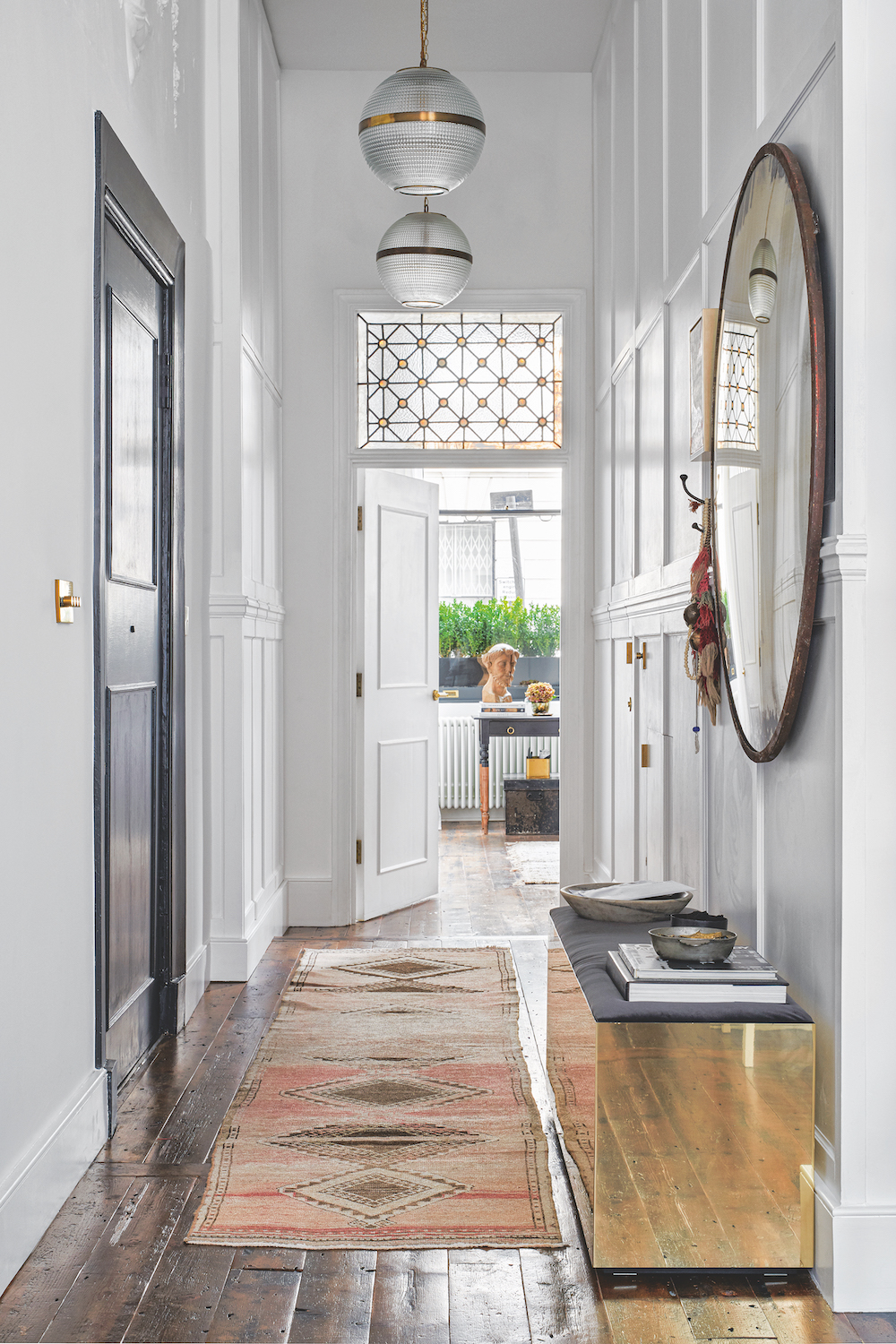
Although the consensus among Feng Shui practitioners is to not hang mirrors opposite doors (or windows), they can be useful in a hallway or entryway. Not only in making a dark or narrow space feel brighter but enhancing them energetically too.
'Energy - and opportunity - enters our home through the front door, so the hallway presents a great opportunity to multiply this fresh vibrant energy,' says Feng Shui expert and interior designer, Anna Lippett.
'Position a mirror on the wall adjacent to the front door, to maximize the energetic and aesthetic benefits - expanding the space and amplifying the incoming chi.'
4. Maximise abundance in your dining area
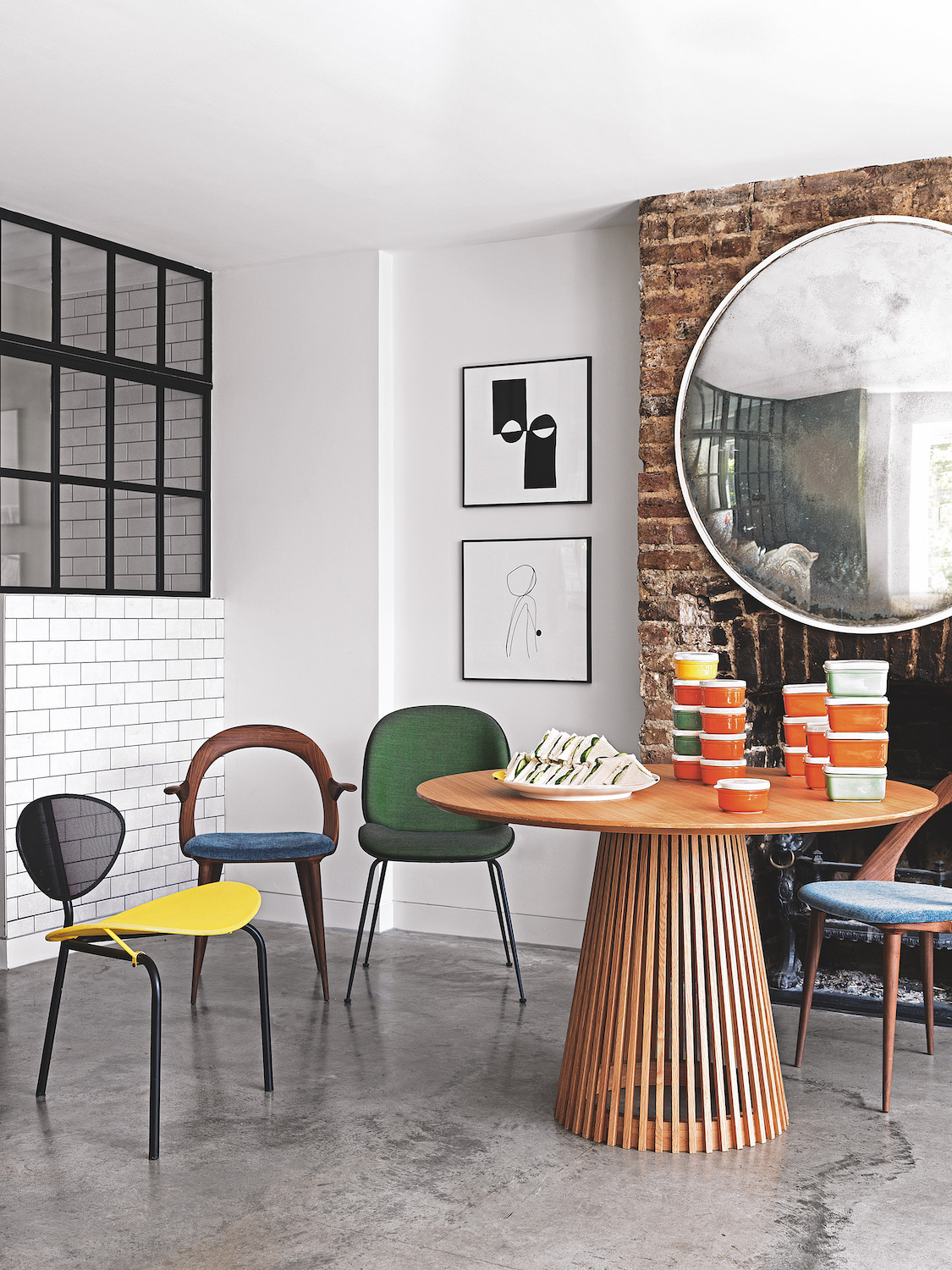
Mirrors are the perfect accent in the dining room, as long as the room is used, according to Feng Shui principles.
'The Shui at play here is that when we feed others, it suggests we have that abundance available to us,' says Amanda Gibby Peters at Simple Shui. 'In ancient China, it was believed if we were able to provide sustenance for others, they would be strong and healthy – and that would allow them to work hard and earn money.
'And so, the cycle would continue. This is why gathering family and friends around the dining room table for a meal, games or even conversation is perceived as prosperous. Add a mirror to the room and you are suggesting even more prosperity and plentiful-ness in your life.'
5. Boost prosperity with a mirrored splashback
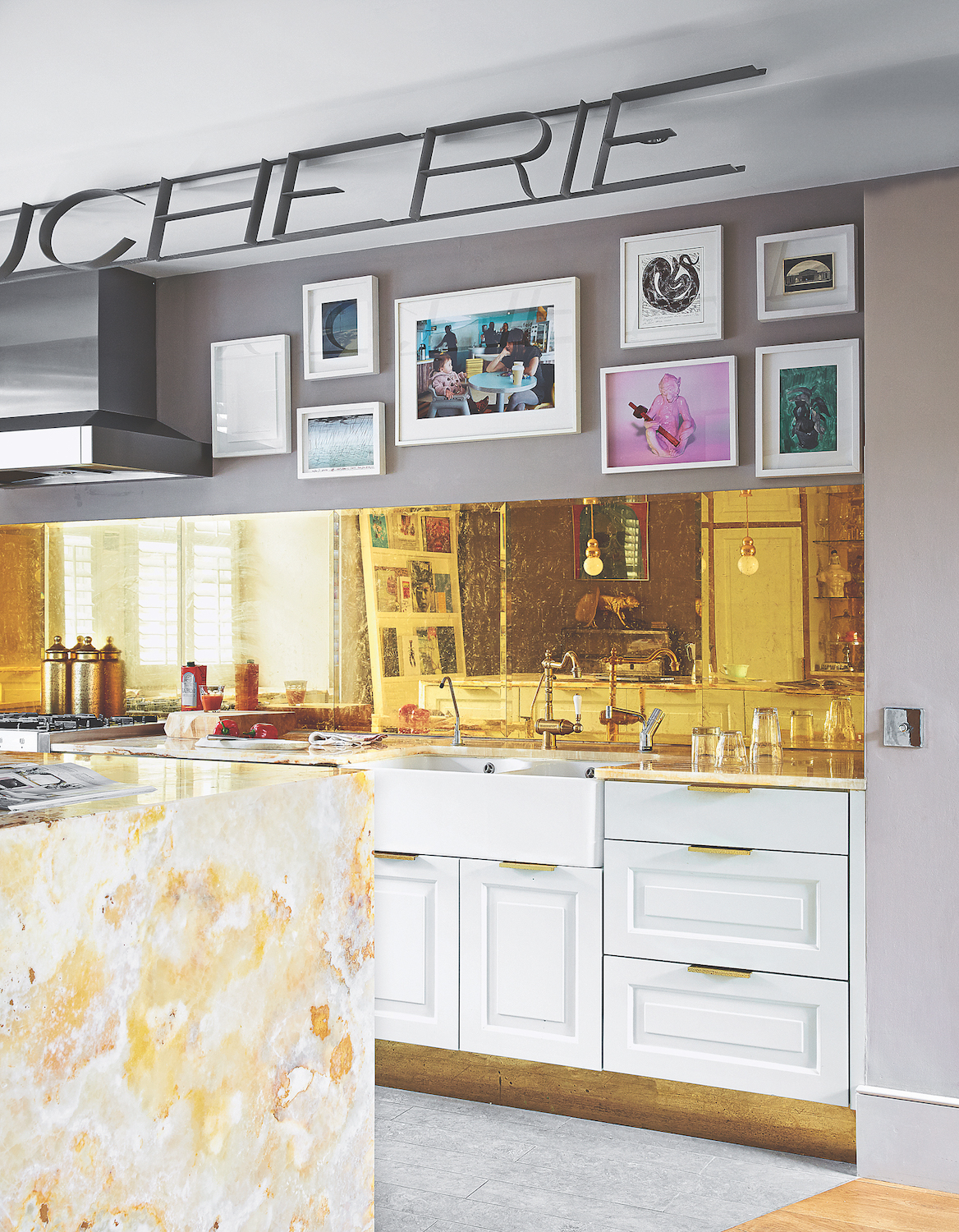
Project: Jo Berryman
A kitchen may not be somewhere you'd think to hang a mirror, but a modern kitchen splashback using mirror can work well here.
'A stove’s burners represent your prosperity so rotate through all of them evenly to maximize auspicious opportunities,' says Amanda at Simple Shui. 'As for the mirror, it reflects and doubles that prosperity.
'If a mirror in the kitchen isn’t your thing, use a shiny teakettle instead. During an interview for an online seminar, the host told me she did this cure when her business wasn’t selling. The next day, after hanging a mirror by her stove top, she had a full-asking offer on the table!'
6. Place so you can see the door to lower stress
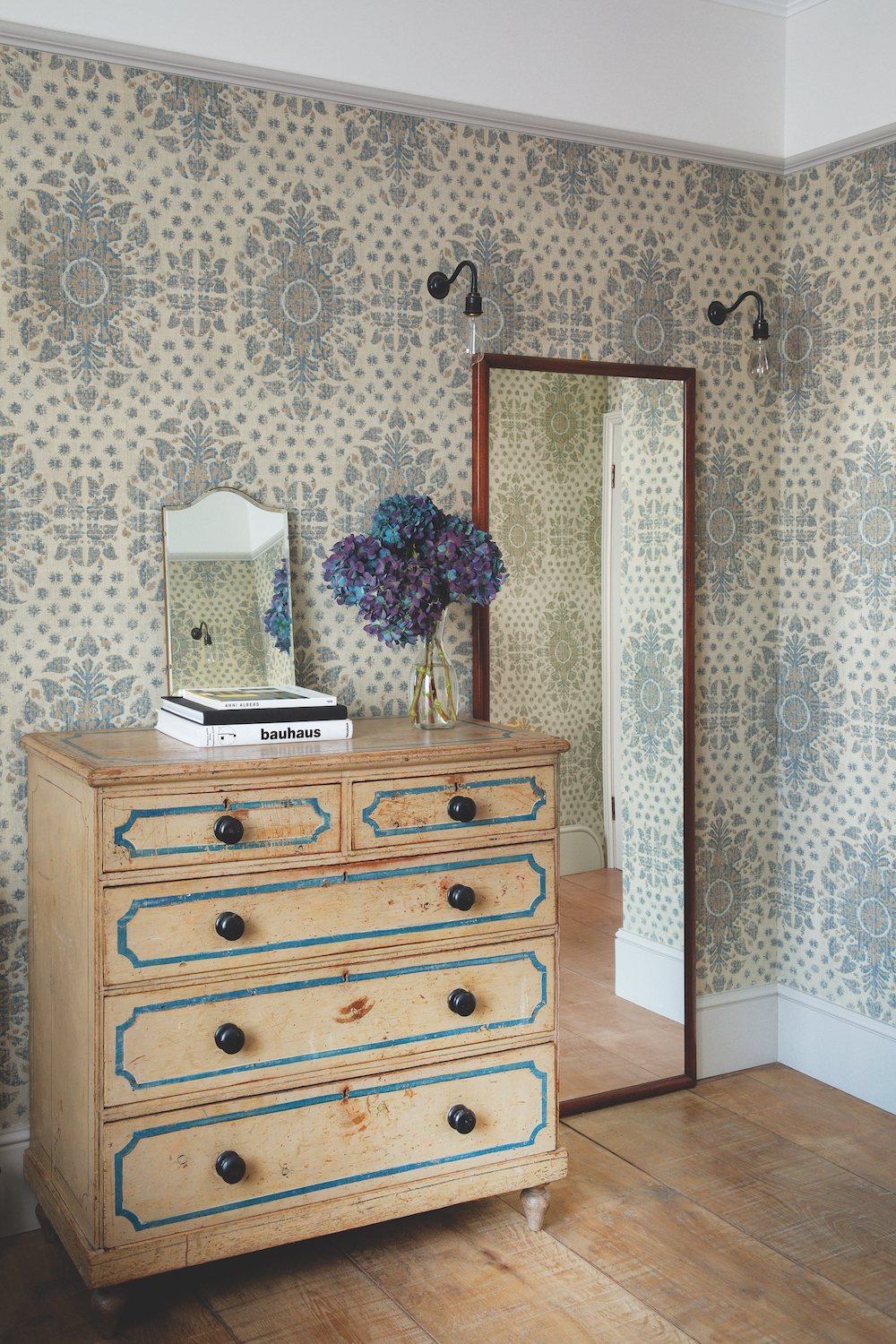
In Feng Shui, the 'commanding position' means you can see the door from wherever you are sitting but without directly facing it. This is good because it allows you to feel more in control of your life. It makes sense, as it also means you can see who is coming into the room, so you're less likely to be startled.
'Mirrors are excellent tools to manage the fight/flight/freeze response that can occur when we’re not able to see the door - particularly from our bed, sofa, desk or whilst cooking,' says Anna Lippett at Holistic Interiors.
'These are known as the Commanding Positions in Feng Shui. Consider placing even just a small mirror reflecting the door, if this applies to you.'
'If you're unable to position your desk or bed in command (where you are facing the door but you are not directly in line with it), you can place a mirror in the room so that you can see whoever enters it,' says Amanda at Simple Shui.
'For example, if you face a wall at your desk, placing a mirror on the wall you face – like it’s a rearview mirror – will allow you to see anyone coming up behind you. If your bed is on the same wall as the door, you can place a bedroom mirror to reflect the door so you can see anyone entering your room.'
7. Hang above a fireplace for balance
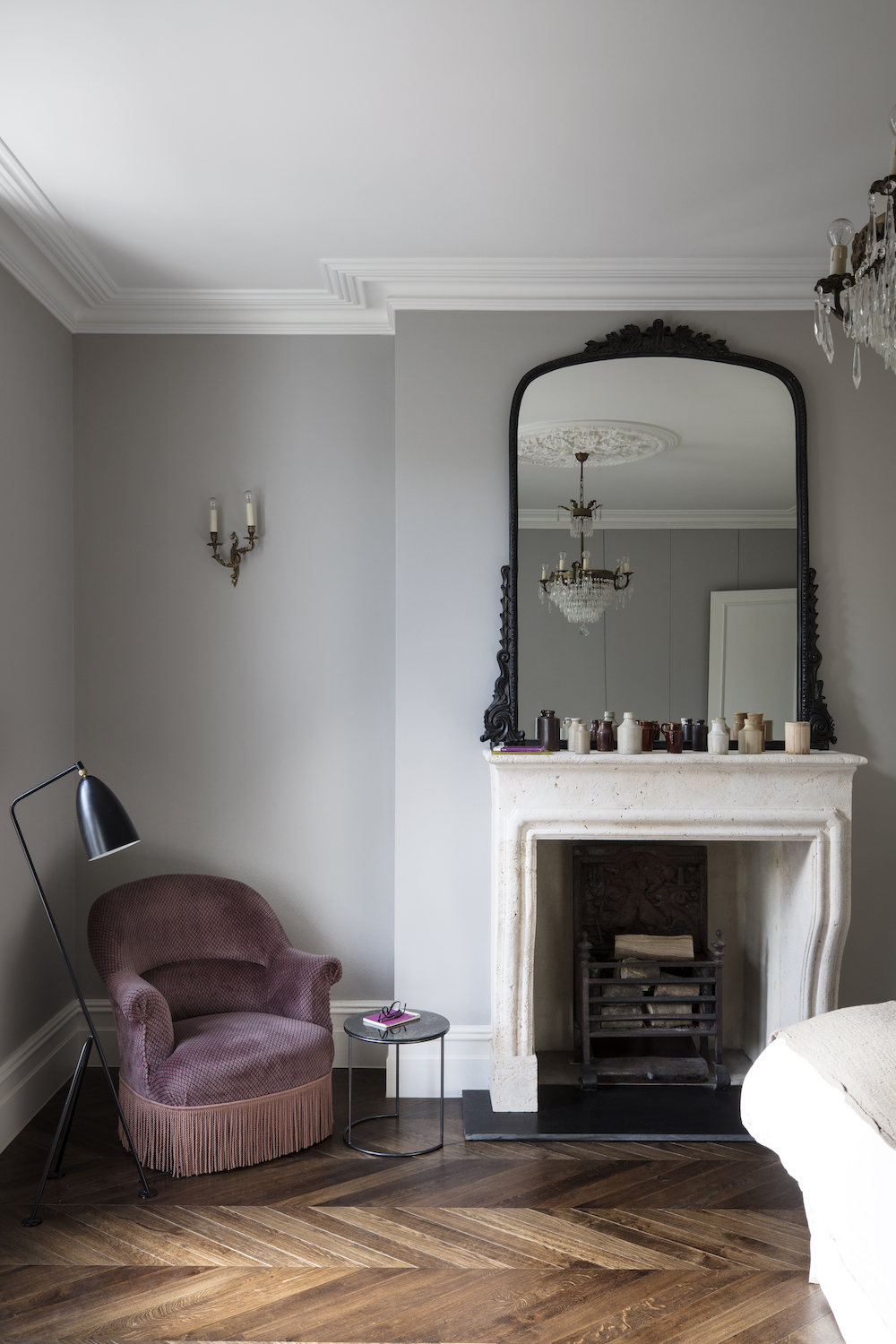
A mirror over a living room mantlepiece or fireplace is a popular placement in interior design, as it generally looks good and adds proportion to a room. However, where the energy of the room is concerned there are more factors at play.
'A mirror over the fireplace balances out the energy of Fire created here,' says Amanda at Simple Shui. 'A fireplace is a very yang expression of the element Fire, and Fire is an element that is kept in check with Water.
'Fire is an element that speaks to visibility, expression, and being seen -- and when it is 'managed' well, we don't burn out or exhaust ourselves. Mirrors represent Water, so they make a lovely combo with the fireplace.
'Also, Water is a good element to have around because it suggests replenishment and keeping things 'in flow'. So, that combination of Fire and Water really plays to keeping all those dynamics in a room in balance.'
8. Avoid placing over or opposite a bed for better sleep
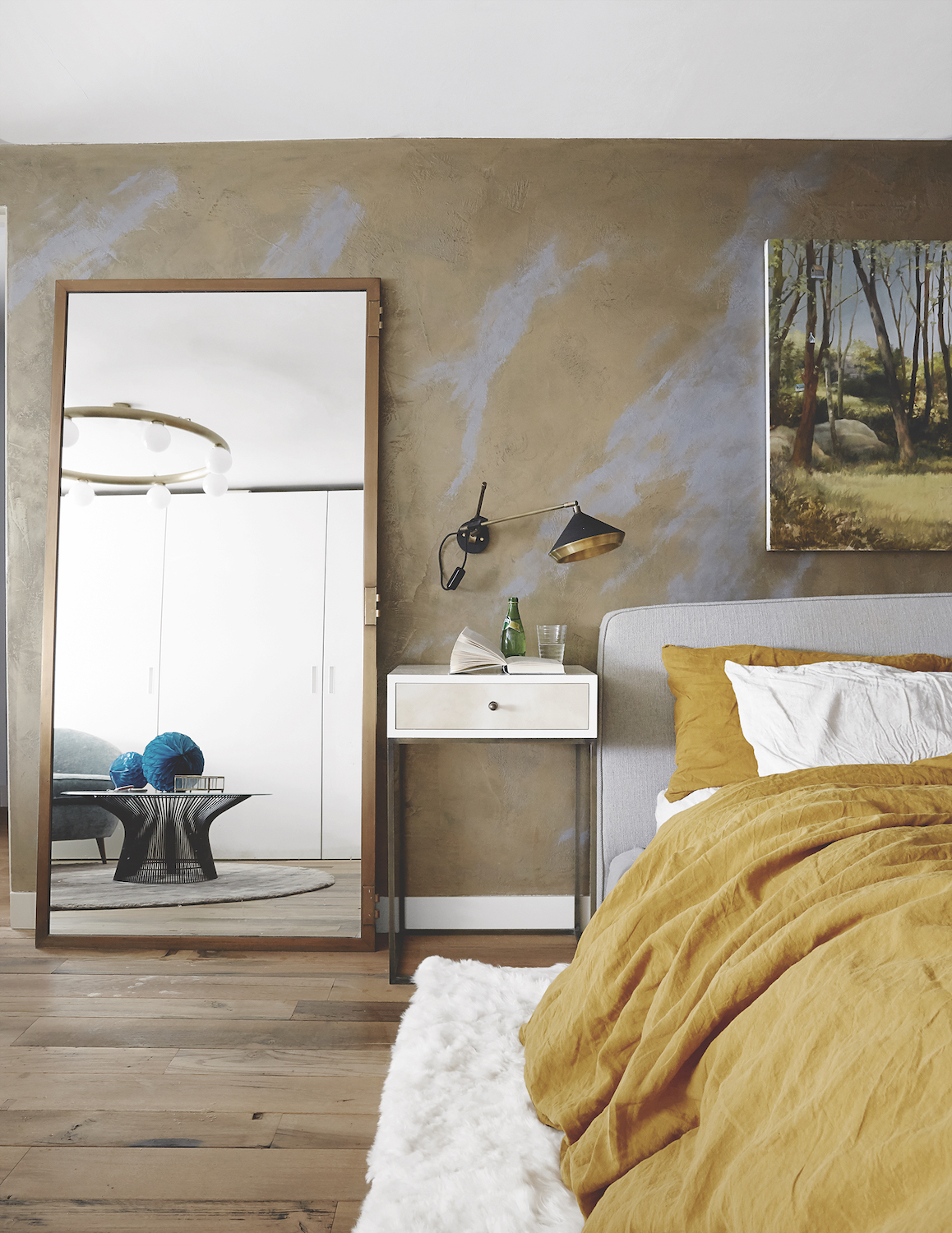
Most of us will have a mirror in the bedroom for practical purposes as much as decorative. However, be mindful of where you choose to place it.
'Don’t position opposite the bed. Mirrors multiply and amplify energy, which isn’t conducive to quality sleep,' advises Anna Lippett at Holistic Interiors.
'Avoid placing them above the bed (or behind a sofa or chair) as this negatively impacts our sense of safety and security too.'
'Mirrors are activating and the bigger they are, the more “engagement” they stir up in a room,' says Amanda Gibby Peters at Simple Shui. 'So, if you're struggling with sleep and you have a mirror in the room, try covering it for a week and see if your sleep quality improves. If your sleep improves, consider moving the mirror to another room.'
9. Reflect a beautiful view for calm
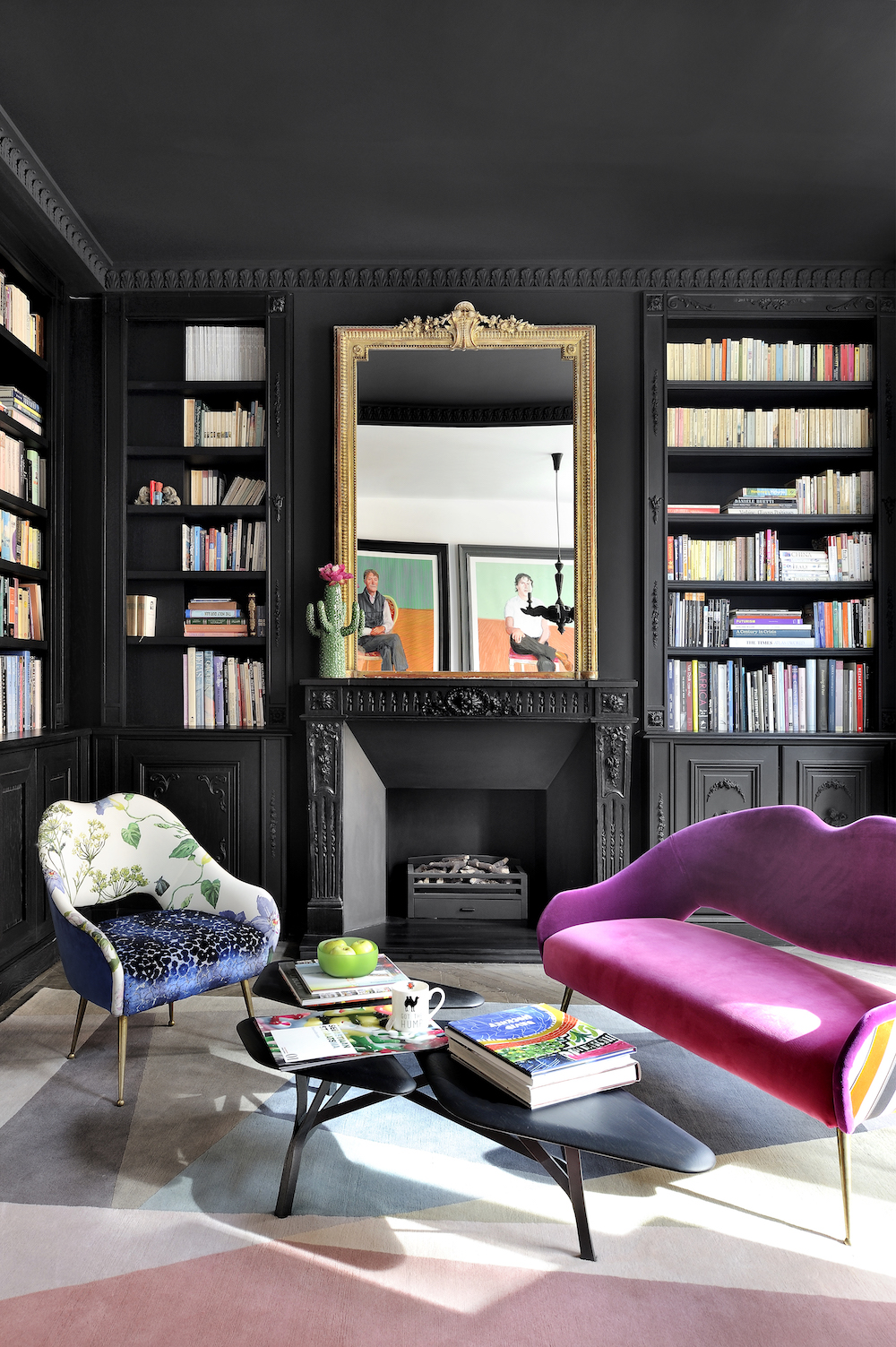
In Feng shui terms what is reflected in a mirror gets magnified, so make sure it's something you like and want more of.
'Mirrors reflect and amplify energy, so it’s important to be intentional with their placement,' says Anna Lippett of Holistic Interiors. 'Position mirrors so they reflect visuals that evoke positive feelings. A garden view, a piece of artwork or a vignette of a space in your home that you love.
'The reflective qualities of mirrors can be used to expand a space and provide depth, but also a sense of calm, much like a still lake.
'Mirrors shouldn’t reflect chaos, clutter or anything that evokes negative feelings. Even a reflection of a closed door to a room filled with clutter is a reminder and amplification of what lies within.'
10. Hang near foliage to encourage growth and vitality
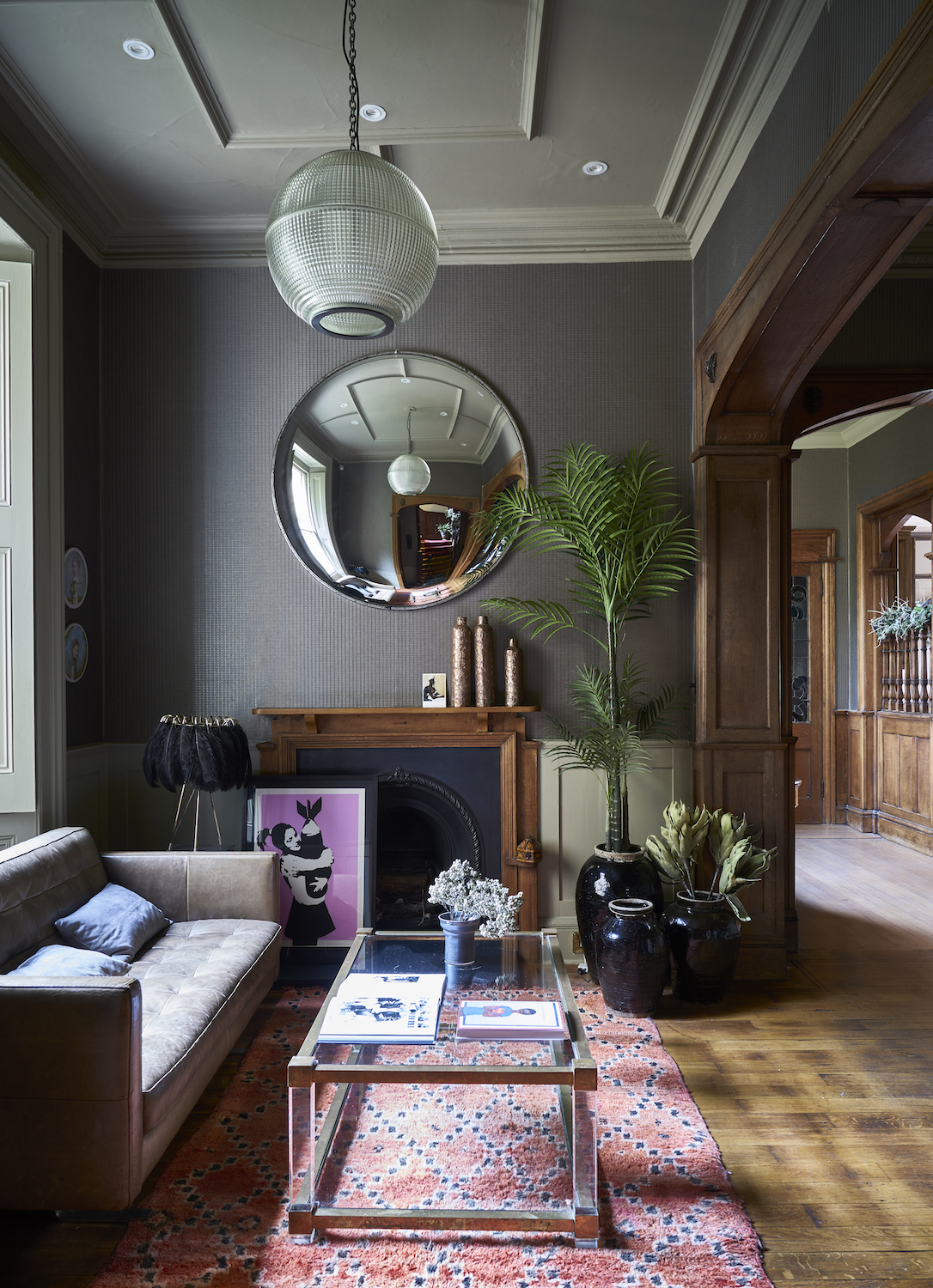
According to Feng Shui practitioners what is reflected in a mirror is magnified. So it's worth considering what that represents.
'A mirror reflecting a view of foliage, trees or a garden invites the element of Wood energy for growth, vitality and kindness,' says Anna Lippett at Holistic Interiors.
'Curves and organic free-flowing shapes soften the flow of chi so work well in living and dining spaces. While wooden and square or rectangular mirrors represent the Earth element inviting in stability, grounding and self-care.
'Metallics, greys and whites represent the element of metal, which enhances precision, joy and clarity. Great for living spaces.'
'When it comes to plants, they suggest growth and contribute “breaking new ground” and “reaching new heights” energy in our homes (and lives),' says Amanda at Simple Shui.
'So, when we take a plant associated with money – like a jade plant, African violets, or even a money tree – and place it in front of a mirror, we are doubling that opportunity and possibility in our homes.
'I love placing fresh flowers in front of mirrors too – it really doubles that presence of prosperity and abundance in our homes. And remember, our homes are holding influence over us, so that’s a good energy to be stepping yourself in daily.'
What does Feng Shui say about mirrors?
Mirrors are important in Feng Shui as they speed up and redirect the flow of chi (energy). Feng Shui practitioners advise that mirrors should always be kept clean, and to replace broken or cracked mirrors promptly.
'In Feng Shui, mirrors are used to expand energy, attract positive energies and moderate the flow of energy (chi/qi),' says Jan Cisek at Feng Shui London.
'Depending on a particular room and its Feng Shui needs, mirrors are used differently. So we start with the desired effect and function and then figure out how best to use mirrors to accomplish the task.'
Where should a mirror be placed in Feng Shui?
It depends on your home and your situation. A Feng Shui practitioner would discuss your aims and use a Bagua map to find the best spots for a mirror and the style.
In general terms, it is good to place mirrors where they reflect a positive view, such as beautiful artwork, water, foliage or friends around a dining table (and definitely not clutter).
'Which areas of your life would you like to attract greater abundance, fluidity or wisdom?,' says Anna Lippett at Holistic Interiors. 'We would use the Bagua map to locate the relevant area and consider whether a mirror would work for you in this position.
'It’s important to avoid broken, chipped, cloudy or distorted mirrors, or any style that fragments the reflection. These negatively impact the chi and also how you see yourself.'
Where should you not put a mirror?
Thankfully, there are some general guidelines that Feng Shui practitioners proffer. 'There are a few places where mirrors shouldn’t be placed,' says Jan Cisek at Feng Shui London.
'On the walls behind beds, opposite beds, on the ceiling, and where they can reflect negative aspects inside and outside. Also, two mirrors shouldn’t be placed opposite each other because they create a virtual infinity space which can be disturbing.'
'There are many nuances in Feng Shui, however, I'd suggest avoiding mirrors reflecting clutter, neglect or anything that feels frustrating or discouraging to you,' says Amanda at Simple Shui.
'If a mirror reflects the outside, make sure what it sees is “healthy” – you don’t necessarily want to double the energy of struggling vegetation or a bare lot that suggests nothing is happening. Likewise, be mindful of utility poles, electric wires, busy roads, or anything that you wouldn’t want to “invite” into your home.
'A mirror reflecting a toilet is not a good idea. If possible, shut the door if your bathroom mirror does “capture” that view. Toilets relate to the elimination of unwanted chi, so you don’t want to amplify that energy.'
Jacky Parker is a freelance lifestyle journalist and writer, producing a wide range of features for magazines and digital platforms. She has written for Livingetc and its sister titles, Homes & Gardens and Country Homes & Interiors for more than 15 years, both as a freelance contributor and as Acting Digital Editor and Acting Style Content Editor, regularly reporting on the latest interiors, gardens and wellness inspiration, speaking to experts in their respective fields, and discovering the best tips.
Jacky has also written for other publications, including Sunday Times Style, The Telegraph, Architectural Digest, House Beautiful, ELLE Decoration, Red, Grand Designs and more.